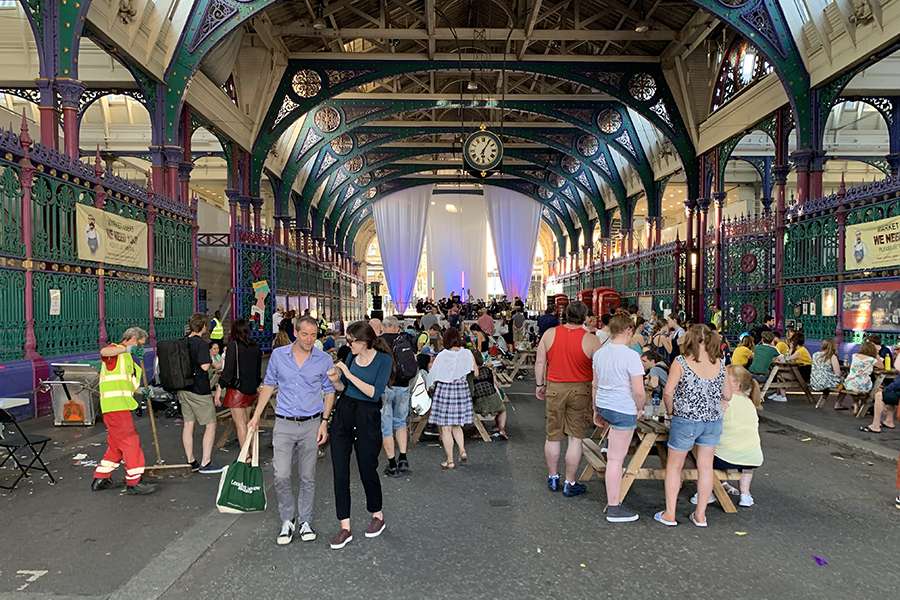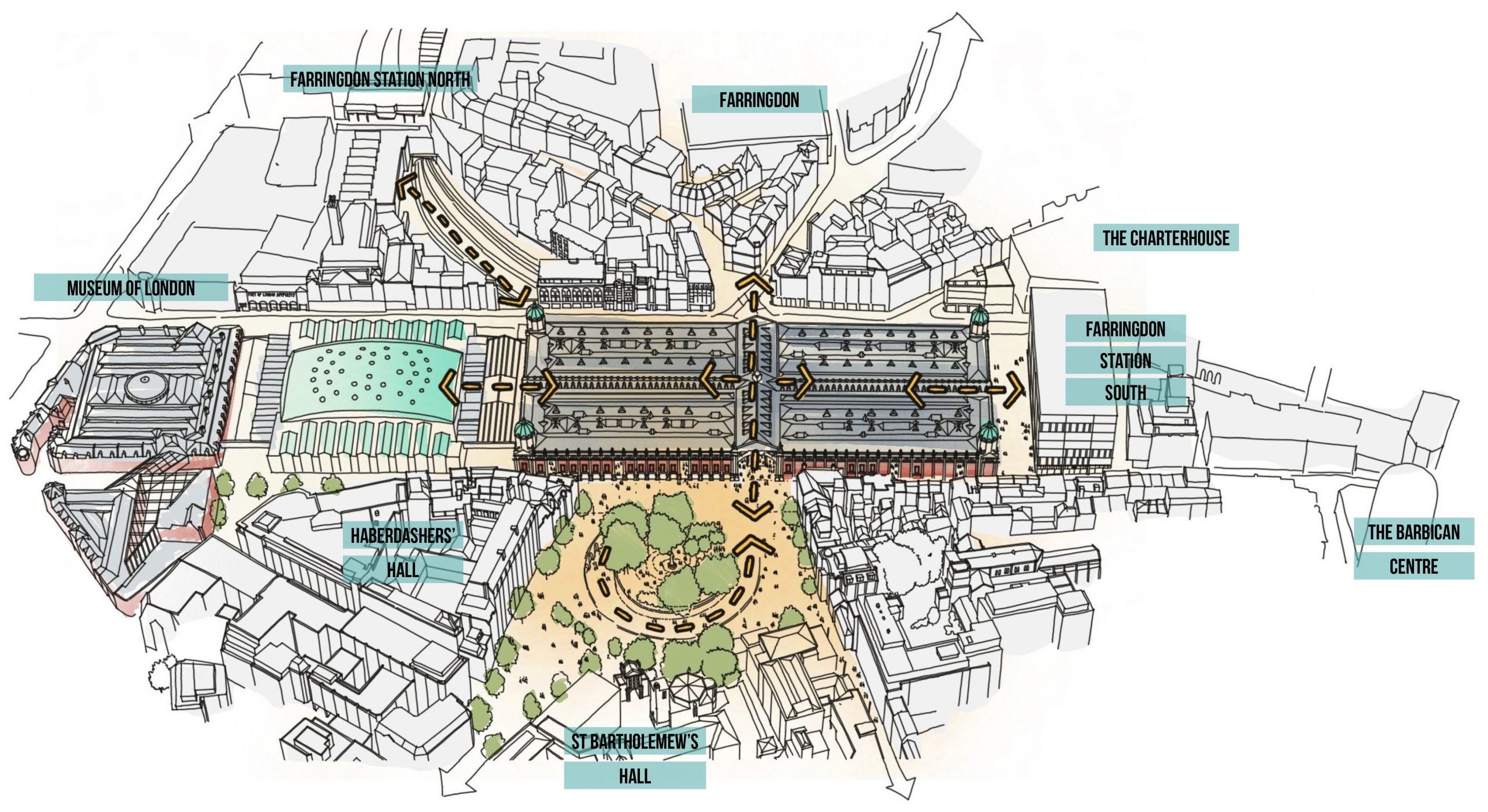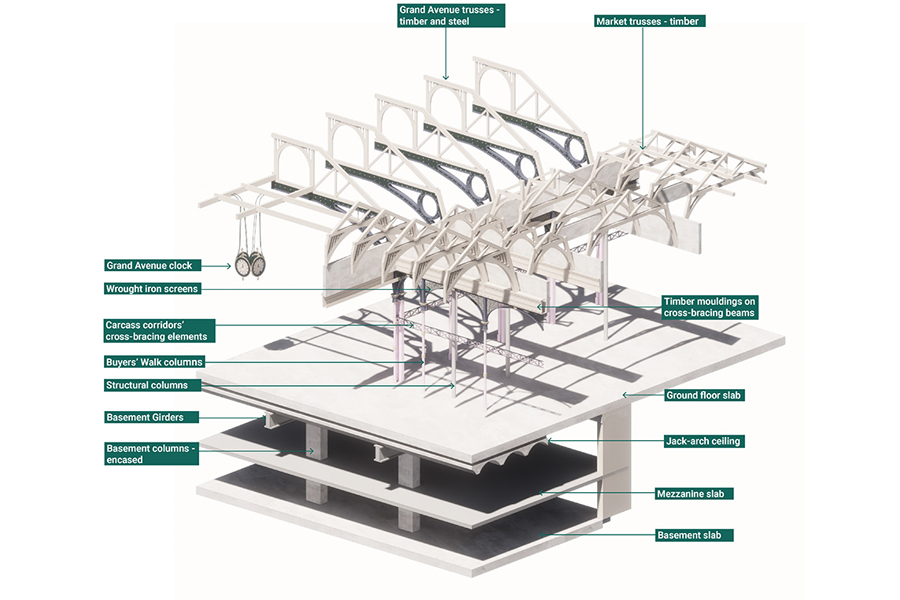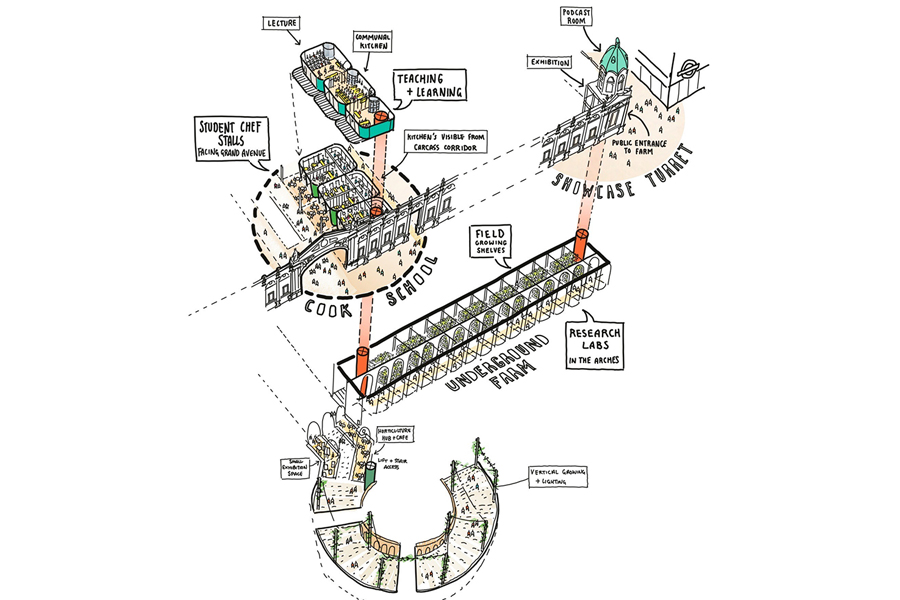Our Vision
Our vision is to re-imagine this nationally significant landmark and secure the legacy of the Grade II* listed East and West Smithfield buildings and the Grade II Rotunda as the heart of a thriving and inclusive London.
The buildings are of significant scale on many levels, and there is as much to experience below ground as there is up to the fantastic roof-scape. Consequently, we have identified five key design principles to help guide our proposed changes or interventions to these interesting and extensive buildings.
A place for all Londoners
Over the years the market buildings have lost their openness with entrances closed, views obstructed, and vehicles prioritised over pedestrians. In the future, the buildings, including the underground spaces, should be more accessible to all. They should open onto and be part of their surroundings, welcoming everyone to enjoy the historic structures up close as part of a new, inclusive London destination.
A connected, 24-hour campus
Just like the bustle of the meat market today, a future Smithfield should retain this lively and animated character. It should be a 24 hour campus, working in harmony with the new Museum of London at West Smithfield, as well as other neighbouring communities. These connections will add new perspectives and experiences within the buildings and throughout the surrounding public realm.
Reveal the historic structure
Additions over the last century detract from the majesty of the original structure. Removing these would reveal the impressive overarching, umbrella-like roof and bring together the future users of the buildings. The ‘grit’ of the structure and former uses should be maintained whilst the visible scars of wear and tear that tell the story of the place should be revealed.
A celebration of food
Food has always brought people together; a role that Smithfield has performed for London for nearly a millennium and should continue to do so. The changes we propose combine sustainable food production, preparation and consumption under one roof, with a focus on training and education at their heart.
A place to grow and thrive
Smithfield needs to evolve as a sustainable place over time, rooted in its past, but flexible and adaptable for the future. The process of change could start early, testing new uses with pop up events and meanwhile spaces and assessing their success at meeting the needs of the local community and the critical issue of climate change through a considered approach to resources, materials and carbon footprint.






